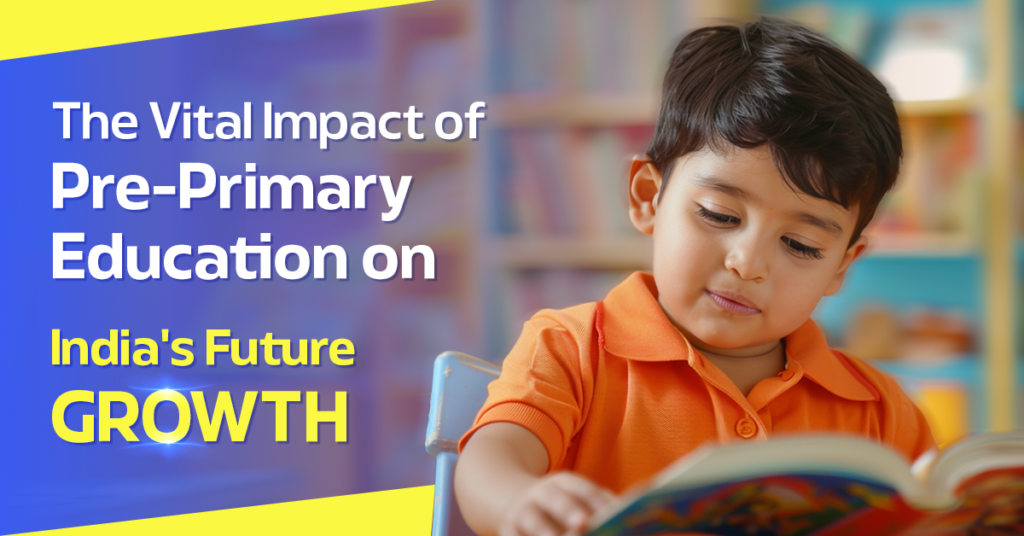Introduction
Education is the backbone of any progressive nation, and its strength lies in the early years of a child’s life. Pre-primary education in India plays a crucial role in shaping young minds and laying the foundation for lifelong learning. In recent years, the focus on early childhood education has increased as experts recognize its importance in cognitive and social development.
The Importance of Preschool Education in India
The importance of preschool education goes beyond academic learning. It provides children with essential skills such as communication, problem-solving, and social interaction. Studies have shown that children who receive early education benefits perform better in primary school and beyond.
Key Benefits of Pre-Primary Education:
- Cognitive Development: Exposure to numbers, letters, and concepts at an early age enhances brain development.
- Social Skills: Interaction with peers in a structured environment builds emotional intelligence.
- Confidence Building: Encouraging curiosity and creativity boosts self-esteem.
- Language Development: Early exposure to different languages improves comprehension and verbal skills.
The Role of Preschools in Child Development
The role of preschools in child development is indispensable. Early education settings offer structured learning environments where children develop foundational literacy, numeracy, and motor skills.
How Preschools Shape a Child’s Growth:
- Emotional Well-being – A nurturing environment helps children transition smoothly into formal schooling.
- Creativity and Imagination – Activities like storytelling, art, and music enhance creativity.
- Discipline and Routine – A structured day instils good habits and time management skills.
- Physical Development – Play-based learning improves motor skills and overall health.
The Impact of Early Learning on India’s Education System
The early learning impact on India’s education system is profound. Strong foundational learning reduces dropout rates and enhances overall academic performance. In rural and urban India, government and private initiatives are working towards strengthening the pre-primary education sector.
Challenges in Early Education in India:
- Lack of Access – Many children, especially in rural areas, do not have access to quality pre-primary education.
- Teacher Training – A shortage of trained educators affects the quality of learning.
- Affordability – While urban preschools thrive, rural areas need cost-effective solutions.
Government Initiatives to Promote Early Education
The Indian government has introduced several programs to promote child development and education:
- National Education Policy (NEP) 2020 – Emphasizes foundational literacy and numeracy.
- Integrated Child Development Services (ICDS) – Supports early childhood care and development.
- Anganwadi Centers – Provide preschool education in rural areas.
Conclusion
Investing in pre-primary education in India is investing in the nation’s future. Quality early childhood education ensures that children grow into capable, confident, and skilled individuals who contribute positively to society. Strengthening the importance of preschool education in all regions will lead to a stronger, more prosperous India.



